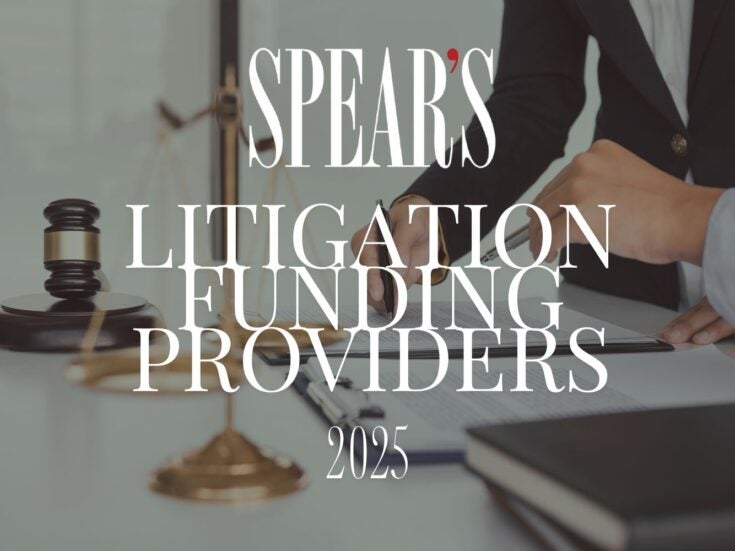With the finding that his letters to ministers ought to be published, the Supreme Court has brought down Prince Charles to the level of every other British citizen, says John Underwood
The Supreme Court has today ended a decade of dogged legal warfare by declaring that Prince Charles’ controversial lobbying letters to ministers are subject to Freedom of Information rules and thus should be published.
The decision could scarcely have come at a more fateful moment. This year marks the 800th anniversary of the signing of Magna Carta, the first meaningful check on the power of the Crown, and today’s move strips away one of the very last exemptions from the law that the Royal family possesses.
Today’s verdict is the result of an extremely persistent campaign by the Guardian. The Prince of Wales’s ‘black spider memos’, 27 letters written by the prince and annotated in his distinctive handwriting, have been defended by two successive attorneys general on the grounds that he must be able to speak freely with ministers. However, the campaign group Republic sees a different motive: ‘It is better to pretend Charles is impartial than to prove he is not.’
Prince Charles has long been an outspoken and passionate contributor to public life, whose pet causes range from environmental awareness to alternative medicine. The Prince’s Trust has done immeasurable good in the UK and abroad, and he has clearly made a lifelong effort to involve himself in the affairs of the country and Commonwealth he will one day lead.
In his view, we are assured, writing to ministers is a vital part of his ‘apprenticeship convention’ – a way of educating himself in the workings of government, as well as expressing his deeply held opinions while he is still able to do so. Once he becomes king, he will be expected to maintain the dignified public silence and absolute impartiality which has been a mainstay of his mother’s reign and, indeed, is a core principle of our constitutional monarchy.
The Guardian’s argument has been that if Prince Charles is using his influence to behave like a lobbyist, he should be subjected to the same transparency requirements. Professor Adam Tomkins, who holds the John Millar Chair of Public Law at the University of Glasgow, gave evidence at the original FoI inquiry regarding the black spider memos.
’The tribunal ruled that some of [Prince Charles’ letters] amounted to what’s called advocacy correspondence. Advocacy correspondence — where the prince is advocating for a particular public policy position to be adopted — is not covered by the constitutional conventions that govern the confidentiality around Royal communications. And for that reason, [the tribunal ruled that] those letters that could be called advocacy rather than anything else should be disclosed.’
The wide-ranging powers of the FoI act cover all manner of public bodies, with exemptions typically relating only to matters of national security, international relations and the like. Many of the exemptions are not absolute, but subject to a ‘public interest test’. When Prince Charles wrote the black spider memos, the Freedom of Information Act did not explicitly list Royal correspondence as having an absolute exemption from scrutiny, neither was this the case when the Guardian submitted its initial FoI request.
’When they were bringing the [FOI] legislation in, they didn’t think it was going to be quite as impactful on the Royal family,’ says Mark Stephens CBE, a media partner at law firm Howard Kennedy. ‘Nobody thought they had these conversations and contacts which have come out into the public domain.’
Lobbyists and other professional influencers work with the constant knowledge that their correspondence is open to scrutiny by watchdogs and journalists; the prince, whose first campaigning letter was allegedly sent to Howard Wilson in 1969, has spent his entire adult life with what he imagined was entirely confidential access to the leading politicians of the day.
Some would still defend the prince’s privacy. ‘I do not believe,’ says Professor Vernon Bogdanor of King’s College London, ‘that release of the prince’s letters would be in the public interest and I believe that it would damage our constitutional monarchy.
’It is a good thing in my view to have an heir to the throne who takes an interest in government matters – indeed many would argue that it is an essential preparation for the throne. Certainly it is better that he should be so informed rather than taking no interest and whiling his time away in other activities.’
Prince Charles cannot be accused of sitting idle; on the contrary, the controversy around the black spider memos derives from the possibility that they go beyond simple opinion into overt lobbying on behalf of the prince’s favoured causes.
In 1993, Prince Charles created the Prince’s Foundation for Integrated Health (FIH), which promoted the use of alternative and complementary treatments. The foundation has since been dissolved following allegations of fraud, but not before its patron wrote at least seven letters to the Medicine and Healthcare Products Regulatory Authority, which soon afterwards relaxed the rules concerning the labelling of herbal products.
This decision was widely condemned by the medical profession but welcomed by producers including Duchy Originals, which sold at the time a variety of flower remedy-style ‘tinctures’.
The legal circus surrounding the black spider memos has cost the government at least ’250,000 in lawyers’ fees, not including those of the Guardian’s costs which it has been obliged to meet.
Such extraordinary efforts ‘tell you something about the content’ of the letters, Mark Stephens says. ‘It’s important that Prince Charles has the ability to have these conversations but the public has to have the reassurance that he’s not biased towards any political party.’
These are efforts the Royal family would have preferred to have avoided, suggests Professor Tomkins: ‘I’ve heard it said – I don’t know if it’s true – that the Palace wishes that they could leak these letters, because if they came into the public domain they’d do less damage than this ongoing litigation.
’Unless there is some kind of bombshell in those letters, which I very much doubt, the bother that’s been caused to [the Royal family] is wholly disproportionate. The easiest thing to do would have been to disclose them in the first place.’ (‘Accidental’ disclosure would, of course, solve the immediate problem without establishing a principle.)
For Professor Bogdanor, the Supreme Court’s ruling presents a significant problem not just for Prince Charles, but for the integrity of our political system. ‘The constitutional role of the Queen was well stated by Bagehot: the right to be consulted, the right to encourage and the right to warn. The Prince of Wales, not being the monarch, does not have the right to be consulted, but he does have the other two rights. It is difficult to see how they can be exercised unless his correspondence with ministers is confidential.’
So despite support for his position and the attorney general’s ‘nuclear option’ of re-invoking the executive veto even at this high level, it seems the prince might finally have been Magna Carta’d, restricted to the same rights and obligations as every other person in the kingdom.
Except, in an eleventh hour intervention back in 2010, the government made this impossible. In the dying days of the last parliament, the Freedom of Information Act was amended to provide complete protection for the correspondence of the monarch, the heir apparent and the next in line – the so-called ‘Prince Charles Amendment’. The amendment was reportedly rushed into law after significant pressure from Royal aides.
’There’s absolutely no way,’ says Professor Tomkins, ‘that any Royal correspondence… can be accessed under FoI, because there’s an absolute exemption. The longer term consequences for the Palace might be more or less nonexistent.’
So while the Guardian has successfully made it through the legal window that had existed, it has now been closed – and the Prince of Wales, still above the law, has cheated the destiny set for him eight centuries ago.







